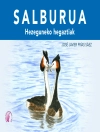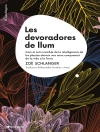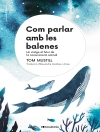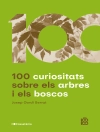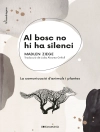The philanthropist and philosopher Strachan Donnelley (1942–2008) devoted his life to studying the complex relationship between humans and nature. Founder and first president of the Center for Humans and Nature, Donnelley was a pioneer in the exploration and promotion of the idea that human beings individually and collectively have moral and civic responsibilities to natural ecosystems.
In this wide-ranging volume, Donnelley traces the connections between influential figures such as Aldo Leopold and Charles Darwin, as well as lesser-known but original thinkers that he met during the course of a full life—ministers at his church, friends with whom he fished, and colleagues who shared his passion for research and writing. He grounds his work in classic philosophers such as Descartes, Spinoza, and Whitehead and reinterprets their writings about the natural world to develop a conservation-centered philosophy, which he dubs ‘democratic ecological citizenship.’
Edited by his daughter, Ceara Donnelley, and Bruce Jennings, Frog Pond Philosophy illuminates the dominant strands of Donnelley’s intellectual identity as a philosopher, naturalist, agitator, and spiritualist. Despite his often grim depiction of the current state of the environment, Donnelly never surrenders his faith in humanity’s ability to meet its ethical obligations to conserve, respect, and nurture the complexity and diversity of the natural world. His vivid and personal essays, rooted in everyday experiences, offer a distinctive perspective on questions of urgent contemporary importance.
İçerik tablosu
Introduction
Prelude: The Marginalist
Prelude: The Roots of a Philosophic Vocation: Prairie Ball Fields and Louisville Slugger Ideas
Frog Pond Philosophy
Intelligent Design and the Matter of Matter
Kansas on My Mind
Scientists’ Public Responsibilities
Bottom Lines and the Earth’s Future
Transgenic Animals and Wild Nature: A Landscape of Moral Ecology
Nature’s Wildness
Wild Turkeys and Old Gobblers
Big Little Snake: Metaphor Mongers and Mountain Rainbows
Hunting Hennepin’s Windblown Bottom
Leopold’s Wildness: Can Humans and Wolves Be at Home in the Adirondacks?
Leopold’s Darwin: Climbing Mountains, Developing Land
What Philosophic Cosmology Can Teach Us
Nature Alive in Spinoza and Whitehead
Neo-Darwinian Cosmologies: Mayr and Jonas
Life and the Ethics of Responsibility
The Philosopher’s Poet: Boris Pasternak’s Cosmological Vision
Francis of Mepkin
Yazar hakkında
Frederick L. Kirschenmann, Distinguished Fellow at the Leopold Center for Sustainable Agriculture in Ames, Iowa, and president of the Stone Barns Center for Food and Agriculture at Pocantico Hills, New York, has published articles in many books including Farm Aid: A Song For America and Sustainable Agroecosystem Management. He lives in Ames, Iowa.


